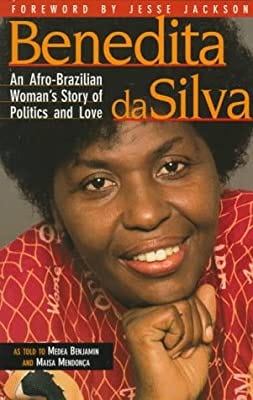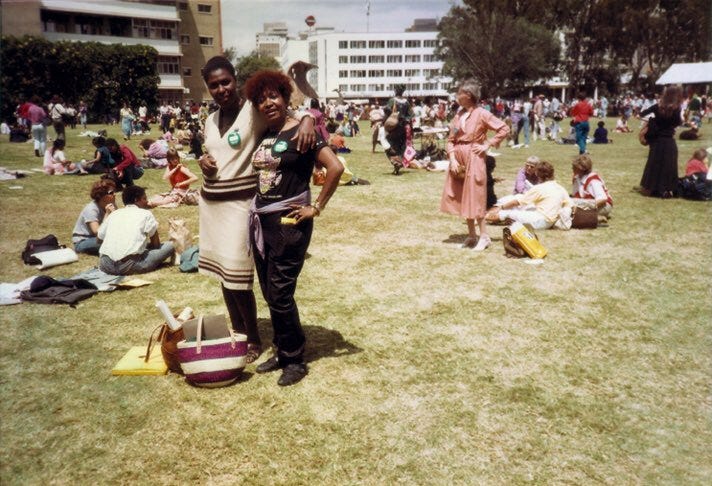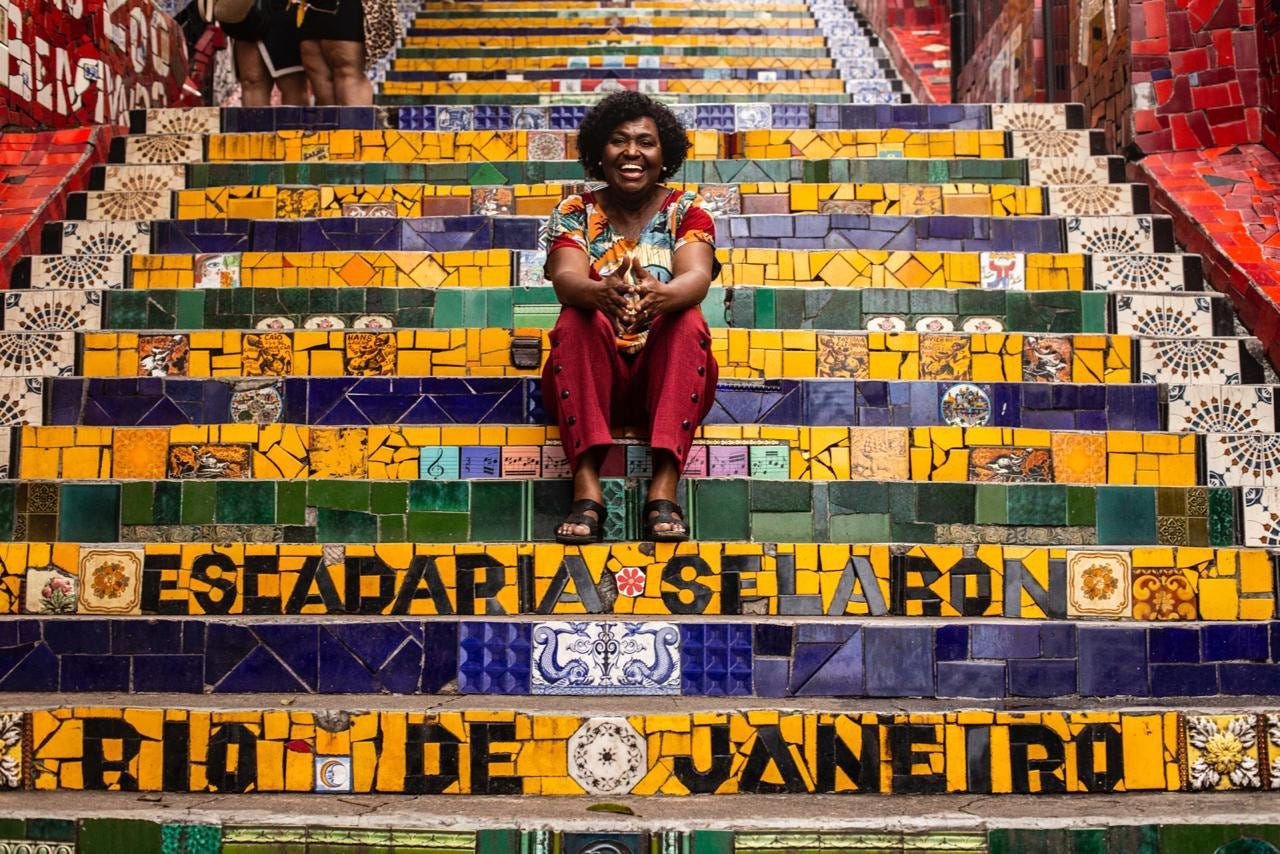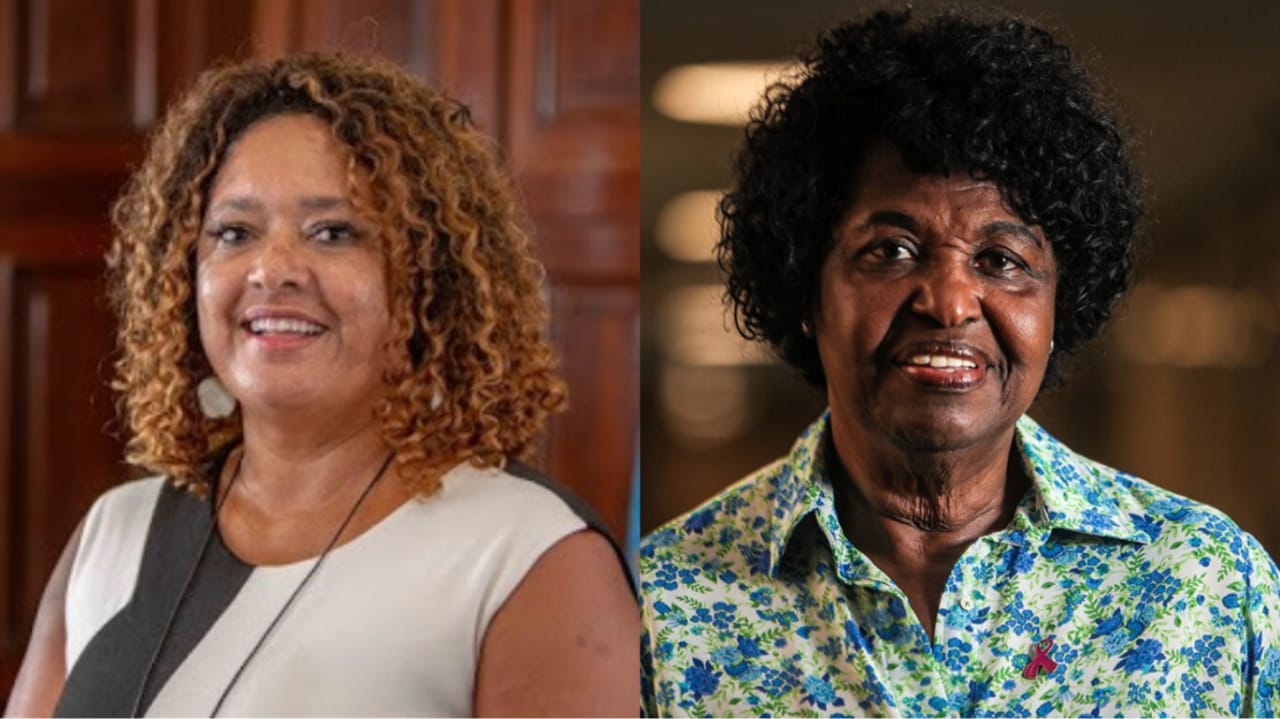Will this Black Woman Become the First Black Mayor of Rio de Janeiro?
The 78-year old Congresswoman Benedita da Silva is running for the mayor of Rio de Janeiro and she is the most qualified and scandal free candidate. Period.
This is an independent publication that focuses on Black Brazilian news, culture, tourism, history and politics. Please sign up to the newsletter if you want to receive updates about what is going on with our brothers and sisters in Brazil.
Jet Magazine introduced me to Benedita Souza da Silva Sampaio, a 78-year-old Black woman who is running for Mayor of Rio de Janeiro. Back in the early 1990s, my aunt subscribed to Ebony and Jet magazines. So when my mother and I visited her, we always caught up on Black news and entertainment.
During one particular visit, I read a small story in Jet Magazine about how Brazil's first and only black congresswoman, da Silva, was on a tour to visit Black leaders in the United States. That tiny article highlighted her favela roots and spoke of her incredible accomplishments.
I never forgot her name or her story, and I'm determined to share her story with the world.
Da Silva, whose nickname is 'Bene, is the first Black Brazilian woman I ever knew by name. When I moved to Brazil in 2015, I was delighted to see that she was STILL a politician—a congresswoman representing Rio de Janeiro. In her almost 40-year career, da Silva has served as a Rio de Janeiro councilwoman, congresswoman, Senator, Vice Governor, Governor, and, finally, Brazil's Minister of Social Action. Based on her longevity, impact, and the barriers she broke, da Silva is Brazil's GREATEST-EVER Black politician - the GOAT. And honestly, she might be Brazil's greatest woman politician as well, having paved the way for President Dilma Rousseff.
Our society is sharply divided between rich and poor, black and white. But the fact that I'm a black woman from a poor background allows me to break a lot of stereotypes. I want to give people hope, to inspire them to seize whatever opportunities they can. - Benedita da Silva
On Sunday, November 15, Cariocas (the nickname for Rio de Janeiro natives) will go to the ballot box to choose their next Mayor. Da Silva is one of 14 candidates vying to uplift the city out of its current dump. Before I break down her chances of winning the mayorship, allow me to briefly tell her incredible story.

From Favela Dweller to Politician
The roots of most black people in Rio de Janeiro lie in its favelas. And Benedita is no different. In the 1930s, her mother moved the family to the city from a farm in Minas Gerais, where black people were still toiling in slave-like conditions. Da Silva was born on March 11, 1943, in the Rio favela (slum) of Praia do Pinto. The family eventually settled in the Chapéu-Mangueira favela, a hill-side squatter community of Black Brazilians that overlooks Leme Beach in Rio de Janeiro's tony Zona Sul neighborhood.
Among 14 siblings, Benedita was the only one who attended school. When she wasn't in school, she ran the streets trying to earn money to help the family. She married her first husband at the age of 16, gave birth to four children (two of whom passed away), and was sterilized at 22 years old. With her husband unable to find stable work, Benedita worked two jobs (in a govt. job and as a nurses' aid) as the family's breadwinner. He passed away from alcoholism when she was in her late 30s. Her experiences were not unique to favela life.
Soon after, she started to work on behalf of the Chapéu-Mangueira neighborhood association, rising to President in 1978. Traditionally, the favela neighborhood association is the advocacy organization for its residents. Within her favela, the Benedita, an evangelical Christian, began to fight for women and Blacks' rights, and of course, better living conditions in favelas. When the Workers' Party, a new political party, was looking for candidates to promote in the city elections, locals pushed for Benedita to run. Benedita says she was attracted to the Workers' Party because as a leftist, socialist party, it welcomed diversity among its ranks — believers and non-believers, educated and non-educated. She was elected as a councilwoman in Rio de Janeiro in 1982 — the beginning of her illustrious political career representing the party of Lula - Brazil's President from 2003 until 2010.
Once Benedita entered politics, she became the voice of the Blacks, Women, and the impoverished in Brazil's government. The policies she sponsored connected directly to those movements. Most of Brazil's powerful politicians represent the interests of rich, white men (no different from the U.S., I guess). Back in the 80s, when da Silva rose rapidly through the political ranks, Brazilian politics was even whiter than it is now. When she arrived in the senate in 1994, she was still living in the Chapéu-Mangueira favela.

She's a Poor, Tall, Dark-Skinned Woman with Black Features
To properly understand da Silva's accomplishments, one must address her physical features. In Brazil, Black women must deal with three stereotypes - the sexualized mulatta, the domestic servant, and the homey Black mother. Da Silva typically would have been rendered invisible as a Black woman with dark skin, kinky hair, and black features. But over at least three decades she was one of the most visible people in politics. Furthermore, she had to overcome people's incorrect assumptions that stemmed strictly from her blackness.
Da Silva understood this.
"There is a stereotype of who can be intelligent and competent, who can have power. In Brazil it is rich, white men who represent the face of power. My opponent during the mayoral race took advantage of that. He'd say, "Are you intelligent? Are you a winner? Then vote for me."People want to identify themselves with winners."
So what has she accomplished in government?
So naturally, the next question should be, what did Benedita accomplish in her 40 years of political activity? Most of the public policy conquered by Brazil's Black Movement in the last 35 years leads back to da Silva.
Brazil's 1988 Constitution was groundbreaking in the way it addressed race and gave prominence to quilombola communities. Da Silva, then a congresswoman, was instrumental in the inclusion of racism as a crime and the acknowledgment of quilombola communities as having a legal right to their land.
In 1991, as a Congresswoman, she presided over a massive investigation into the mass sterilization of black and poor women in Brazil.
In 1996 she worked with her political party to introduce a law requiring political parties to have at least 20% representation of women.
She sponsored law Law 10.639/03, which, in 2003 made Afro-Brazilian history a requirement on public education in Brazil .
Served as the rapporteur for the "PEC das Domesticas" a constitutional amendment that established domestic servants' working rights in Brazil. Although she did not sponsor the PEC, her earlier work in the 1990s was instrumental in observing the rights of domestic works in Brazil.
She recently sponsored a bill that requires political parties to allocate an equal proportion of political funds to black candidates. The bill was approved in the Supreme Court right before this recent municipal election season. This bill will likely lead to the election of several Black politicians in coming years.
In several interviews, Frei David of Educafro, indicated that it was only through da Silva that Rio de Janeiro could push through racial quotas in universities. At the time, da Silva was governor of Rio de Janeiro, and she set up the strategic meetings that led this groundbreaking education policy (states across Brazil followed Rio).
I'm sure I haven't included all of her accomplishments in this list. But this is already seven times more than what Jair Bolsonaro accomplished as a congressman for 27 years in Brazil before becoming President.
What platform is she running on?
Da Silva is running with black woman as her vice-mayor, Nurse Rejane. Given the horrible impact of Covid-19 on Rio de Janeiro's population (21,000 people have died), it makes perfect sense that she would emphasize improving Rio de Janeiro's health infrastructure. Da Silva has released a 60-page document outlining her plans for Rio de Janeiro.
Does she truly have a chance to become the first Black Mayor of Rio de Janeiro?
This is da Silva's second time running for the Mayor of Rio de Janeiro. She first ran In 1992 and came close to beating her rival - Cesar Maia - a white elite man. Back then, the entire world was rooting for her. Glorious profiles of her filled the pages of The New York Times, Chicago Tribune and other international publications.
But she couldn't overcome the overt racism that she encountered.
She lost 41% to Maia's 44% in 1992.
And now we are in 2020, and da Silva is a 78 year-old woman running for the Mayor of Rio de Janeiro. Even with her impeccable record of service and her lack of large scandals (she is the only Rio ex-governor in the last 20 years to have not been convicted for corruption), she does not lead in the polls. Approximately 8% of Cariocas plan on voting for her. She is behind two white men and a white woman, which means it's unlikely that she will advance to the second round.
Unfortunately, she doesn't spark the same type of magic and excitement in people she did almost 30 years ago. This is something I don't understand about Cariocas. How is it that the greatest politician that Rio has ever produced isn't leading in this race? Well, the Workers' Party has never been a strong political party in Rio and after the Car Wash scandal, its image was further damaged. Now Rio de Janeiro is the land of Bolsonaro. So there is a very strong chance that Marcelo Crivella - the Bolsonaro-supported Mayor of Rio de Janeiro will be reelected.
Regardless of what happens this Sunday, she will always be the GREATEST.
Some other resources about Benedita da Silva:







I have given copies of her autobiography to Harry Belafonte,Cornell West ,Michael Eric Dyson,and Tavis Smiley.
Finally some good news pertaining to Afro-Brazilians. Thank you for writing about this!